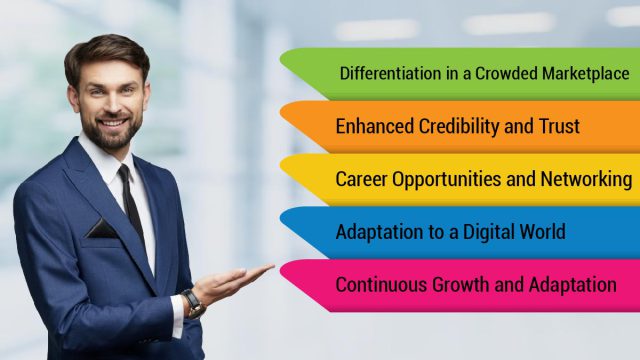The Significance of Personal Branding for Professionals: Making Your Mark in a Competitive World
Amidst the ever-evolving landscape of the contemporary professional realm, the concept of personal branding has emerged as a powerful tool for individuals striving not just for a foothold, but for prominence in their careers. Gone are the days when a mere resume sufficed to attract potential employers or clients. In this era of digital connectivity and heightened competition, cultivating a strong personal brand has become imperative. This article delves into the reasons why personal branding holds paramount importance for professionals, supported by relevant statistics, insightful information, and real-world examples.
1. Differentiation in a Crowded Marketplace
As industries become increasingly saturated with talent, the ability to stand out is crucial. Personal branding offers professionals a unique platform to showcase their skills, achievements, and expertise, differentiating themselves from others in their field. According to a LinkedIn survey, over 70% of professionals believe that personal branding plays a significant role in their career success. An effective personal brand serves as a beacon that draws attention and cultivates trust, making potential clients or employers more likely to choose you over other candidates.
Example: Neil Patel, a digital marketing entrepreneur, has built a powerful personal brand through his prolific content creation, speaking engagements, and authoritative online presence. This brand has enabled him to attract a massive audience and establish his credibility in the marketing industry.
2. Enhanced Credibility and Trust
A well-defined personal brand can boost your credibility and establish you as an expert in your field. Research conducted by the Edelman Trust Barometer reveals that people trust individuals more than organizations, particularly in areas where expertise is valued. Sharing your knowledge and insights through thought leadership content, speaking engagements, and industry collaborations can elevate your reputation and foster trust among your target audience.
Example: Brené Brown, a research professor and public speaker, has built a personal brand around vulnerability, courage, and human connection. Through her TED Talks, books, and media appearances, she has gained immense credibility in the fields of psychology and personal development.
3. Career Opportunities and Networking
An effective personal brand can open doors to a plethora of career opportunities. According to a survey by Weber Shandwick, 45% of professionals believe that a strong personal brand leads to increased job opportunities. Your personal brand acts as a virtual introduction, making it easier to connect with like-minded professionals, potential clients, and industry influencers. It can also position you as a desirable candidate for speaking engagements, collaborations, and mentorship roles.
Example: Gary Vaynerchuk, a serial entrepreneur and motivational speaker, leveraged his personal brand to expand his business ventures and become a sought-after speaker at conferences and events worldwide.
4. Adaptation to a Digital World
In the digital age, an online presence is often the first point of contact between professionals and their audience. Statistically, 94% of recruiters use LinkedIn to source candidates, and 57% of decision-makers are more likely to buy from a company whose CEO uses social media. A strong personal brand enables you to curate your online persona, making a lasting impression on those who encounter your digital footprint.
Example: Elon Musk, the CEO of Tesla and SpaceX, effectively uses Twitter to share updates, and insights, and even engage with customers, contributing to his personal brand as a visionary tech entrepreneur.
5. Continuous Growth and Adaptation
Personal branding is not a one-time endeavor; it’s a journey of continuous growth and adaptation. Professionals who invest in their personal brands are motivated to stay current in their fields, embrace new challenges, and remain agile in the face of change. This mindset of growth and adaptability is highly appealing to employers and clients seeking individuals who can navigate the evolving demands of the modern workplace.
Example: Marie Forleo, a life coach, motivational speaker, and author, consistently evolves her personal brand to align with her audience’s changing needs. Her brand has stayed relevant over the years due to her commitment to personal growth and development.
Epilogue
In a world where reputation precedes opportunity, personal branding empowers professionals to craft their narratives, define their expertise, and stand out in a competitive landscape. Through differentiation, credibility, networking, adaptation, and continuous growth, personal branding paves the way for greater career success and fulfillment. As the digital age continues to reshape professional interactions, embracing personal branding is no longer a choice—it’s a strategic imperative for those who seek to leave an indelible mark on their industries.
Here are some links for our readers with valuable perspectives from reputable sources that support and expand on the ideas discussed in this article. Explore and enrich yourself.
Forbes – Why Personal Branding Is Key for Professional Success
HubSpot – The Ultimate Guide to Personal Branding
LinkedIn Learning – Personal Branding on Social Media
Entrepreneur – The Power of Personal Branding: Why You Need to Build Your Brand
Neil Patel – The Step-by-Step Guide to Building Your Personal Brand
Read more exclusive articles from our Editorial section.



















